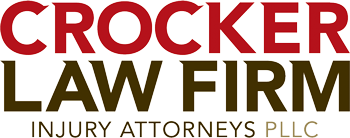Glossary
270.846.3100
A
Answer
After a Plaintiff files a complaint with the court, the defendant has an opportunity to respond to the allegations. The formal written response filed with the court is called an Answer.
Appeal
The judicial system allows you to have a court’s decision reviewed by a higher court; this process is called an appeal.
B
Bailiff
Bailiffs are court officials that help the courtroom judge by preserving order. A bailiff assists the judge, courtroom clerks, witnesses, and jurors.
C
Case
A legal case is a dispute or controversy between opposing parties in the judicial system. A case begins by filing a complaint, petition, or indictment. A legal case may be either civil or criminal.
Circuit Court
In Kentucky, the Circuit Court hears all civil cases involving more than $5,000. This court hears matters regarding divorce, adoption, termination of parental rights, land title disputes, and contested wills. The Circuit Court also presides over serious criminal charges, including capital offenses and felonies.
Civil Case
A civil case is a dispute between two people that seeks compensation for the injured person through money or action.
Complaint
When you are unable to resolve your civil dispute, you file a written statement making claims against the defendant. This document filed with the court is a complaint.
Contingency Fee
A legal fee that is dependent on the outcome of the case. Contingency fees are normally a percentage of the money received in settlement or judgment and are paid from the money recovered when it is received.
Court
A court is a place where judges administer justice. Sometimes you hear people say they are “going to court.” This can also mean they are involved in legal action.
Criminal Case
A criminal case is brought by the Commonwealth of Kentucky to punish someone for violating a law. The punishment differs based on the crime committed and could consist of a fine or jail time.
D
Defendant
In a civil case, the Defendant is the person sued by the Plaintiff. In a criminal case, the Defendant is the person charged with a crime.
Deliberation
Deliberation is the discussion and consideration of the facts by the jury before reaching a verdict.
Deposition
A deposition involves attorneys questioning witnesses under oath and recording the statement.
Discovery
Each side in a lawsuit has a right to discovery; this is the process of obtaining information from the other party. Written questions or interrogatories, request to produce, and depositions are all part of the discovery in a case.
District Court
In Kentucky, this court handles city and county ordinances, misdemeanor charges, traffic offenses, probate, small claims under $2,500 and civil cases under $5,000.
E
Evidence
Evidence is documents, testimony, records, and other information legally presented at trial.
F
G
H
I
Instructions
The judge gives instructions or directions to the jury concerning the law relevant to the case.
J
K
L
M
Maximum Medical Improvement (MMI)
Maximum medical improvement means that you have recovered to the point that your condition is not likely to change greatly in next year.
Motor Vehicle
A vehicle that is self-propelled (not manually propelled like a bicycle). Most states define “motor vehicle” more precisely by statute. The definition will determine how various laws apply. This may include laws regarding traffic safety, insurance, licensing, and registration.
Kentucky defines a “motor vehicle” as any vehicle that transports persons or property on the public highways of the Commonwealth, excluding certain construction equipment and farm machinery. The statue also excludes mopeds, which are also precisely defined. See KRS 304.39-020.
Tennessee defines a motor vehicle as every vehicle that is self-propelled, excluding motorized bicycles, and including trolley cars that are not operated on rails. See Tennessee Code 55-8-101.
Motor Vehicle Accident
A traffic accident. It may involve two cars colliding (a car crash), or a collision between any motor vehicle and a person, animal, building, or object.
In Kentucky term “motor vehicle” is defined by statute to mean any vehicle which transports people or property on the public highways, propelled by power other than “muscular power” (a bicycle is not a motor vehicle). The definition also excludes certain construction equipment, farm equipment, and mopeds. See KRS 304.39.020. This is important because whether a vehicle is a motor vehicle can affect the laws that apply to a crash, including the state of limitations (time limit to bring a claim).
Motor Vehicle Accident is often abbreviated to MVA. Various police departments, governments and other organizations use different terms for motor vehicle accident, including motor vehicle collision (MVC), traffic collision, motor vehicle traffic collision, road traffic accident (RTI), or personal injury collision.
In regular conversation people often refer to a motor vehicle accident as a car wreck or car crash, even if the wreck involved a semi truck, motorcycle, bicycle, or pedestrian.
N
O
P
Parties
A Plaintiff or Defendant is a party to a lawsuit.
Permanent Impairment Rating
Permanent Impairment Rating is an assessment of the severity of your permanent loss of function or ability.
Personal Injury Lawyer
A lawyer who represents people who have been injured physically, mentally, or emotionally as a result of the negligence or deliberate act of another person or entity.
The word “injury” has a broader meaning in the law than it does in regular use. As a legal term, “injury” means any harm done to another, including to his rights, reputation or property. In a legal proceeding we would say the breach of a contract causes “injury” to business interests of the wronged party.
The term “personal injury” distinguishes harm to person’s body, mind or emotions from other types of harm.
Because “injury” and “personal injury” mean the same thing to most people who are not lawyers, many attorneys just refer to themselves as injury lawyers.
Attorneys identifying as Injury lawyers or personal injury lawyers commonly represent people in claims arising from car accidents, slip and fall accidents, medical malpractice, or defective products.
Plaintiff
A Plaintiff is a person or party who has filed a complaint against another person.
Plaintiff Personal Injury Lawyer
A common term to describe an attorney who represents an injured person in claims against an at-fault party. While the term “plaintiff” refers to a person who brought a lawsuit, most personal injury cases are settled without a suit being filed. Your “plaintiff’s attorney” may resolve your injury claim without actually making you a plaintiff.
In the United States lawyers can practice in multiple areas of law. For example, a general practice attorney can handle divorces, accident claims, and criminal cases. Lawyers and law firms can represent plaintiffs, defendants (the party against whom a claim is brought), and insurance companies in different cases.
When an attorney identifies as a plaintiff personal injury attorney, a plaintiff’s lawyer, or a personal injury lawyer, that can be an indication that his or her practice is narrowed to representing only injured parties who are bringing claims.
Q
R
S
T
Temporary Total Disability (TTD)
You are considered to be temporarily totally disabled if you have not yet reached maximum medical improvement and are unable to return work due to your injuries.
U
V
W
X
Y
Z

